English - Reading
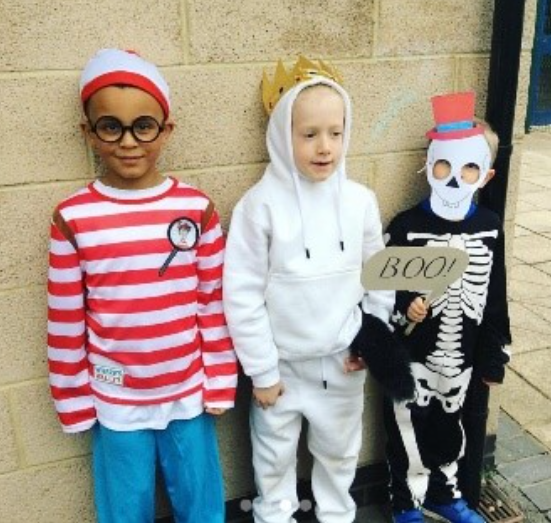
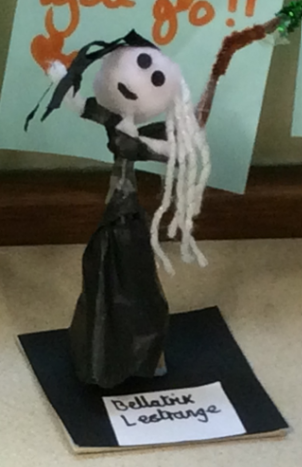
‘If you are going to get anywhere in life, you have to read a lot of books.’ - Roald Dahl
Intent
At St John’s, we want all children to leave our school as fluent and confident readers who love books and the written word. We want reading to excite children and inspire them to explore our incredible world and their place in it as well as imagine other worlds.
Reading is an essential life skill which enables children to access the whole curriculum, participate fully in society and take advantage of opportunities which life offers.
Reading is at the heart of St John’s. We have a calm, comfortable and well-stocked library, run by pupil librarians, which offers children an escape from the hubbub of school life. Reading is celebrated in regular Reading Services and every class has a Reading Champion who shares their love of books with their peers. We have regular author visits; recently we have welcomed Matt Goodfellow and Onjali Rauf in school and the children have attended the Bath Children's Literary Festival and met with Katherine Rundell, all award-winning children’s authors. We recently took part in Laura Mucha's Guinness World Record Attempt for the largest school poetry lesson! We also run termly book swaps so that all children are able to have books in their own home.
As well as being given the opportunity to read a book of their choice in school every day, for a magical 15 minutes, all children can relax and disappear into an imaginary world when their teacher reads them the class reader.
Implementation
- Our writing curriculum is based on high quality picture books which help children to develop a love of reading as well as exploring a range of texts.
- In addition, all classes have a class reader which is read to them by their teacher every day and is sometimes also used in reading lessons.
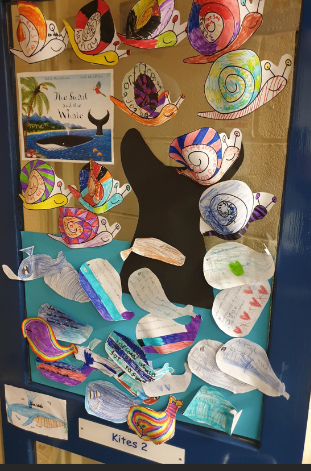
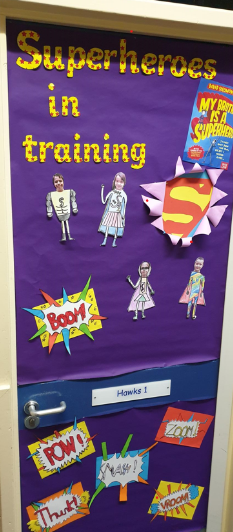
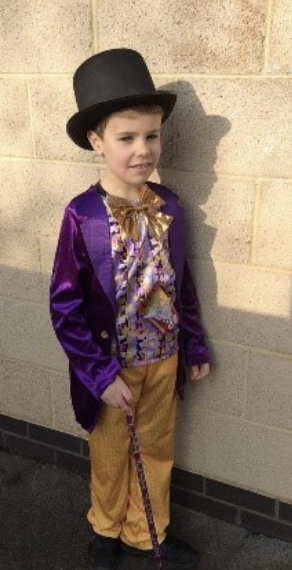
Reading Books:
- All children have a reading book.
- When they are learning Phonics, this is a decodable book.
- At Key Stage 1, most children follow a reading scheme with books becoming progressively more difficult as their reading becomes more fluent.
- When children enter Key Stage 2, most of them start to choose their own books (supported by their teacher) from a wide range of texts (both fiction and non-fiction), which are matched to their ability and confidence as a reader.
- As they become more confident with their reading, they are given the freedom to choose from the full range of books available in the library.
- All children’s reading is assessed regularly and those who need the most support are listened to read daily by an adult and at least once a week by a teacher.
- Children throughout the school are expected to read at home at least 4 times per week.
Reading Lessons
- All children have one reading lesson per week in class.
- These lessons cover a wide range of texts including poetry, classical literature, literature from other cultures, contemporary fiction, newspaper reports and digital media.
- In these lessons, we use echo reading, choral reading and reader’s theatre to increase children’s reading fluency and encourage them to use expression when they are reading.
- We also focus on vocabulary – helping to narrow the gap for children – predicting what will happen next in a story and inferring information from what they have read.
Additional Reading Opportunities
- Children across the school are encouraged to read in front of their peers in the classroom.
- Children regularly read at Class Services and at whole school celebrations such as Harvest Festival and the Christmas Carol Service.
- All children in Year 6 are expected to read in front of the school and their parents at the Leavers’ Service in St John’s Church.
- Children have chance to read out their own writing work to peers.
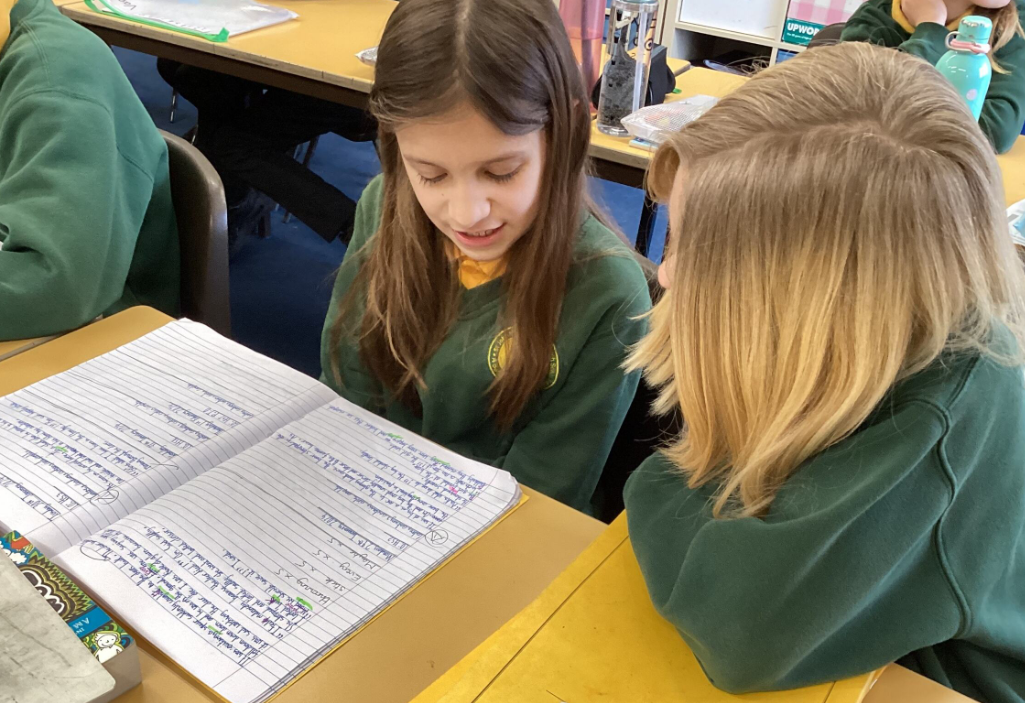
Impact
- Children at St John’s love reading. They enjoy participating in the Summer Reading Challenge and World Book Day.
- Their love of reading and the focus on reading across the school is reflected in our Reading Assessment Data where children do consistently well at the end of KS2. In 2025, 72% of children in Year 6 achieved the Expected Standard and 50% were working at a Higher Level.
- Children and Teachers complete an annual Reading Survey which gives them an opportunity to have their views on Reading at St Johns - what is working and what we could do better – heard.
Reading Assessment
- Teachers use a range of assessments, both formal and informal, to build a picture of an individual child’s confidence and ability with reading and ensure that they are making progress and being sufficiently challenged.
- Informal assessment includes listening to children read and probing their understanding of texts in lessons across the curriculum.
- Children are formally assessed twice a year for Reading Fluency (using an age appropriate DIBELS text) and the results of these assessments are used to identify children who need additional support with their reading.
- PIRA Reading Comprehension assessments are completed by all children once every two terms and the results of these tests are used to provide standardised data about children’s reading skills. The information from these tests is used to support planning and to ensure that all children are making at least expected progress. The data from the PIRA assessments is also analysed and discussed for the whole cohort in termly Pupil Progress Meetings so that additional support can be put in place where required.
Overviews and Progression Documents

 St
John the Evangelist Church School
St
John the Evangelist Church School 


